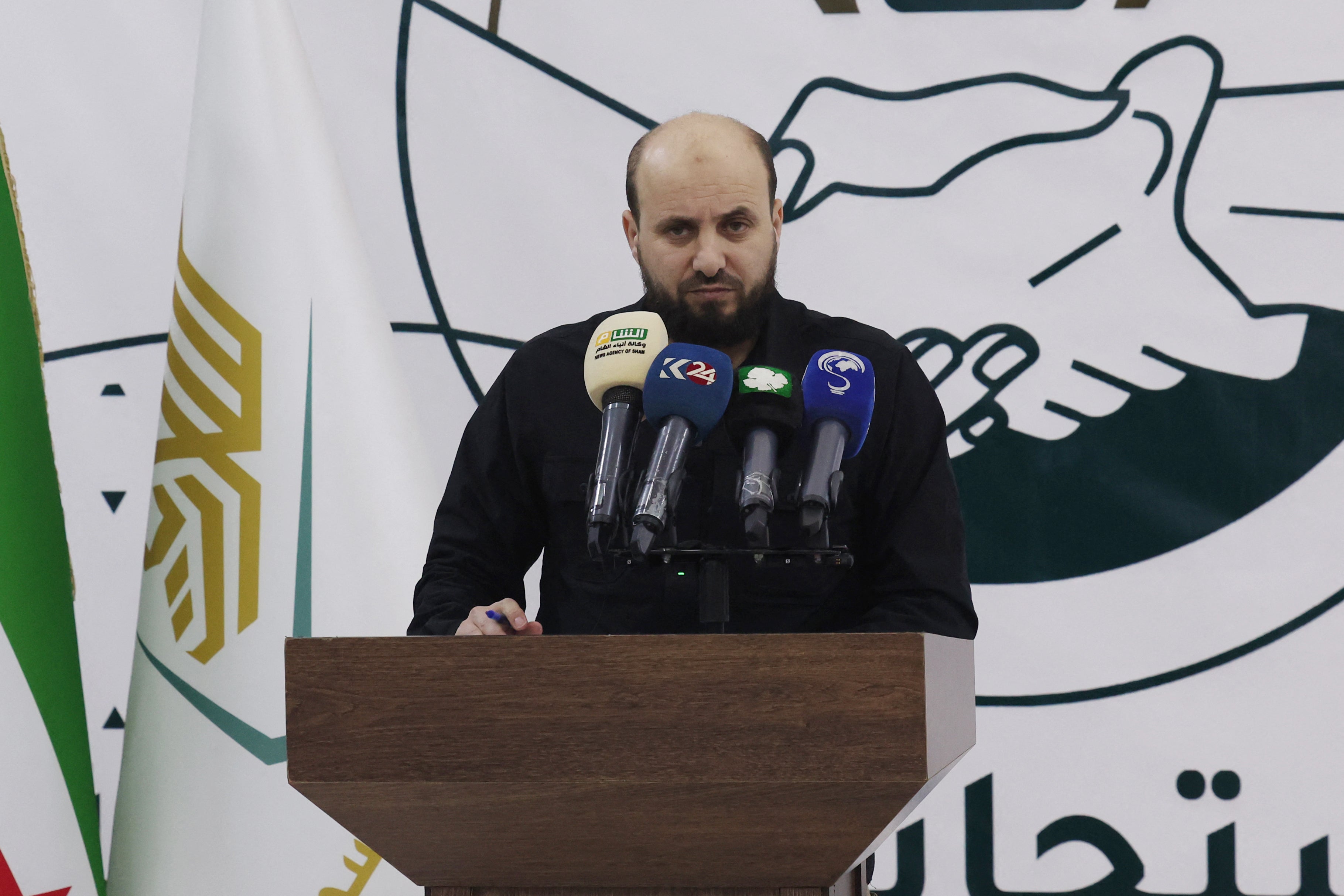Who is Mohammed al-Bashir? Syria’s new interim PM who has connections to both Assad and the rebels
Mohammed al-Bashir, a politician in his 40s from the northwest Syrian province of Idlib, has agreed to become caretaker prime minister until March next year

Your support helps us to tell the story
From reproductive rights to climate change to Big Tech, The Independent is on the ground when the story is developing. Whether it's investigating the financials of Elon Musk's pro-Trump PAC or producing our latest documentary, 'The A Word', which shines a light on the American women fighting for reproductive rights, we know how important it is to parse out the facts from the messaging.
At such a critical moment in US history, we need reporters on the ground. Your donation allows us to keep sending journalists to speak to both sides of the story.
The Independent is trusted by Americans across the entire political spectrum. And unlike many other quality news outlets, we choose not to lock Americans out of our reporting and analysis with paywalls. We believe quality journalism should be available to everyone, paid for by those who can afford it.
Your support makes all the difference.After more than half a century of the Assad family ruling over Syria, a little-known local politician has been named as the country’s interim leader and tasked with ushering in a stable government.
Three days on from rebels completing a sweeping offensive forcing Bashar Al-Assad, who succeeded his father as ruler, out of Syria and out of office, the country is looking to ensure a peaceful transition of power.
Mohammed al-Bashir, a politician who has been governing the rebel-controlled province of Idlib in northwest Syria, from which the offensive began, from January this year, has been made responsible for that transition.
In a brief address on state television on Tuesday, he announced that representatives of the rebels and the ousted government had agreed for him to act as caretaker until 1 March.
"Today we held a cabinet meeting that included a team from the Salvation government that was working in Idlib and its vicinity, and the government of the ousted regime," he said.
"The meeting was under the headline of transferring the files and institutions to caretake the government."
As he spoke, banks and shops reopened in the Syrian capital of Damascus for the first time since the fall of the Assad regime. Traffic returned to the road and cleaners were out sweeping the streets.
Below, The Independent looks at what is known about Mr al-Bashir.
Born in 1983, Syria’s new interim leader has little political profile beyond Idlib province, where rebels had maintained an administration during the long years that Syria’s civil war front lines were frozen.
A Facebook page of the rebel administration says he was trained as an electrical engineer, later receiving a degree from the University of Aleppo in sharia and law in 2007, and has held posts in areas including education.
He also has a qualification in the English language, and administrative planning and project management.
After the Syrian civil war broke out, he became director of the Al-Amal educational institute, which provided education to children affected by the war.
Mr al-Bashir held a number of ministerial positions in the Syrian Salvation Government, which was the civil administration of a small pocket in Syria’s northwestern Idlib province controlled by HTS.
He has served as the prime minister of the Syrian Salvation Government since January 2024.
It remains unclear who will take over from Mr al-Bashir after March next year and despite a reasonably stable few days following the end of Assad’s rule, there are still concerns there could be future instability and violence.
While pointing to positive early signals, the European Union’s new foreign policy chief Kaja Kallas said on Tuesday that there are legitimate concerns about the risks of sectarian violence in Syria and a resurgence of extremism in the country.
Join our commenting forum
Join thought-provoking conversations, follow other Independent readers and see their replies
Comments